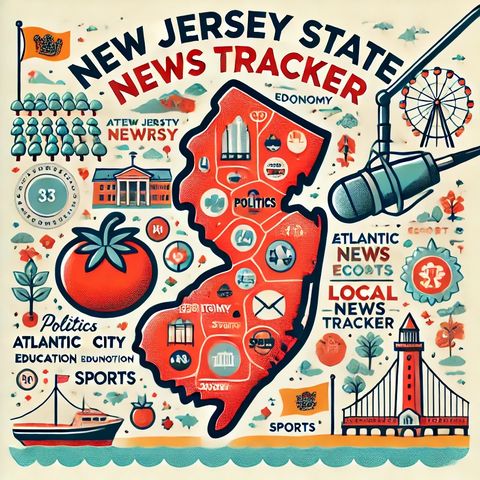New Jersey Wildfires and Drought Surge: Climate Crisis Threatens State Safety and Infrastructure

Download and listen anywhere
Download your favorite episodes and enjoy them, wherever you are! Sign up or log in now to access offline listening.
New Jersey Wildfires and Drought Surge: Climate Crisis Threatens State Safety and Infrastructure
This is an automatically generated transcript. Please note that complete accuracy is not guaranteed.
Description
New Jersey has faced a series of environmental challenges in recent times, notably the increase in wildfires and the effects of ongoing drought conditions in the Northeastern U.S. These issues...
show moreThe New Jersey Forest Fire Service has been at the forefront of combating wildfires across the state. This task has been made all the more difficult due to the dry conditions enhancing the fire risks. A "red flag" warning by the National Weather Service indicates severe fire weather conditions, including low humidity, warm temperatures, and strong winds, which are a recipe for potentially dangerous fire activity. These conditions are not only a threat to forests and rural areas but also pose significant risks to populated communities and critical infrastructure.
One notable incident in this regard occurred when the Ridgefield Fire Department responded to an emergency call from a PSE&G natural gas-generating station. Such facilities, due to their inherent characteristics and the materials handled, are at significant risk during fire emergencies. It is crucial for firefighting services to respond promptly to ensure that fires are contained before they can cause extensive damage.
The prevalence of these conditions and incidents in New Jersey highlights a larger trend related to climate change and its impact on regional weather patterns. The state has seen a trend towards warmer and drier conditions, which contributes to the soil moisture deficit, making the region more susceptible to fires.
Moreover, the management of water resources has become a critical concern. Drought conditions stress water supplies essential for agriculture, drinking water, and firefighting reserves. New Jersey’s authorities have been urged to implement comprehensive water management and forest management strategies to mitigate these risks before they escalate into larger catastrophes.
Finally, public awareness and community preparedness are paramount. Information campaigns and community drills can immensely benefit local populations, equipping them with the knowledge and tools necessary to protect their homes and families in case of fire emergencies. Cooperation between state agencies, local communities, and federal support when necessary is critical to addressing these complex challenges.
Continuous monitoring, proactive disaster management strategies, and substantial investment in sustainable practices will be essential for New Jersey as it navigates these environmental challenges in the future. This approach will not only address immediate concerns related to fires and droughts but also contribute to long-term environmental sustainability and public safety.
Information
| Author | QP-4 |
| Organization | William Corbin |
| Website | - |
| Tags |
Copyright 2024 - Spreaker Inc. an iHeartMedia Company

Comments